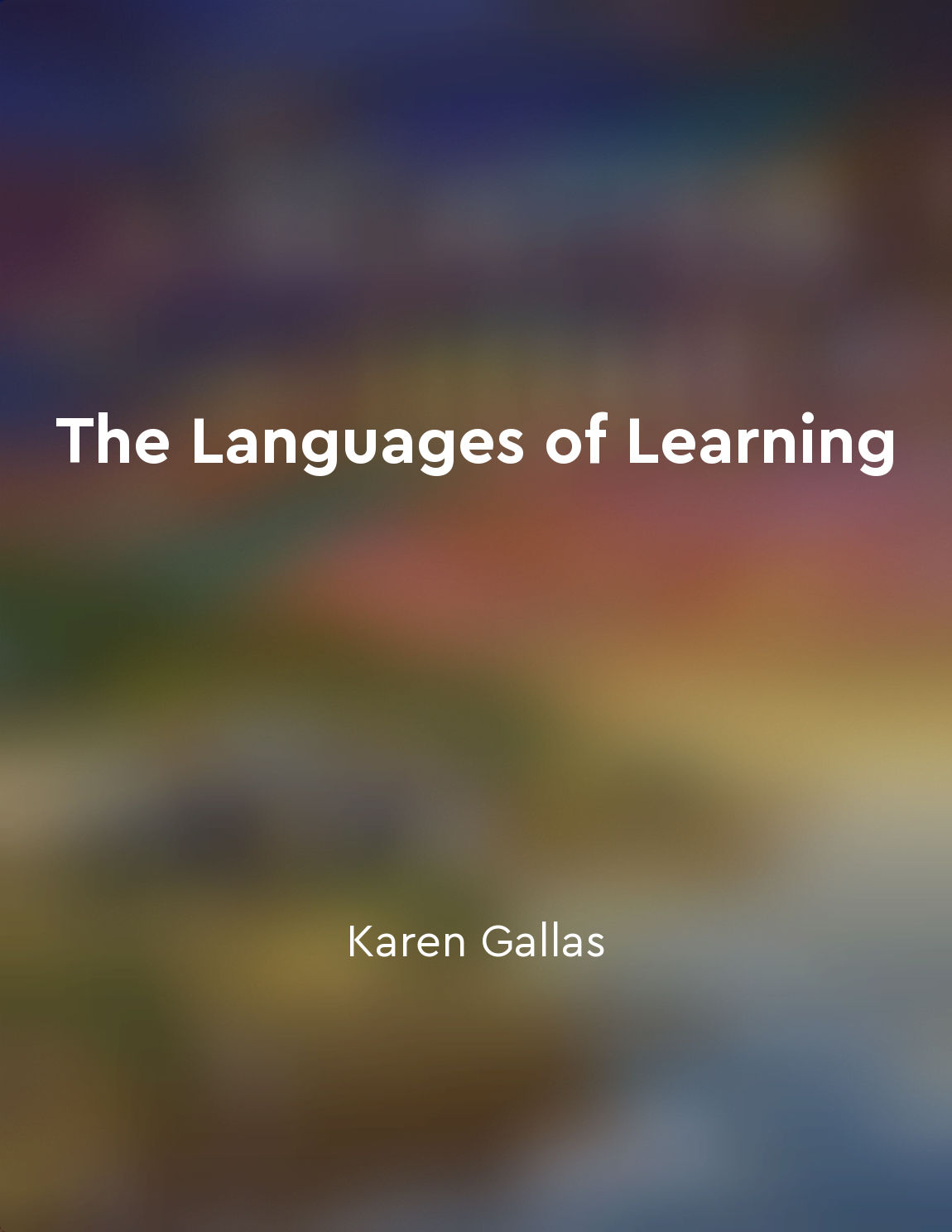Teachers must prioritize children's emotional and psychological needs in relation to their languages of learning from "summary" of The Languages of Learning by Karen Gallas
When teachers engage with children's languages of learning, they must also attend to their emotional and psychological needs. This involves recognizing that language is not just a tool for communication, but a medium through which children express their thoughts, feelings, and experiences. By acknowledging and valuing children's languages, teachers create a supportive environment that fosters emotional well-being and psychological development. Children's languages of learning are deeply intertwined with their identities and sense of self. When teachers prioritize these languages, they affirm children's cultural backgrounds, experiences, and ways of knowing. This validation is crucial for children's emotional growth, as it helps them feel seen, heard, and understood. By honoring children's languages, teachers build trust and rapport, which are essential for creating a safe and nurturing learning environment. In attending to children's emotional and psychological needs, teachers must be attuned to the ways in which language can both convey and conceal emotions. Children may use their languages to express joy, sadness, frustration, or fear, and teachers must be sensitive to these nuances. By listening actively and empathetically, teachers can support children in processing and articulating their emotions, which is essential for emotional resilience and well-being. Moreover, teachers must be mindful of the power dynamics that exist within language interactions. Children may feel vulnerable or marginalized if their languages are not valued or respected. By prioritizing children's languages of learning, teachers empower children to assert their voices and perspectives, which is essential for cultivating a sense of agency and self-efficacy. This empowerment can have a profound impact on children's emotional and psychological development, as it helps them feel confident, competent, and capable.- Prioritizing children's emotional and psychological needs in relation to their languages of learning is not just about linguistic competence, but about creating a culture of care and respect. When teachers recognize and honor children's languages, they affirm their identities, support their emotional well-being, and empower them to navigate the complexities of language and emotion. By fostering a holistic approach to language learning that encompasses emotional and psychological dimensions, teachers can create a more inclusive, equitable, and enriching learning environment for all children.
Similar Posts
Understand the impact of language on your life
Language is not just a tool for communication; it is a powerful force that shapes our thoughts, beliefs, and actions. The words...
Departure brings uncertainty
Departure is a leap into the unknown, a step taken without the safety net of familiarity. It is a journey into uncertainty, whe...
Focus on form instruction
Focus on form instruction involves drawing learners' attention to linguistic elements in the input during meaningful communicat...
Social learning is a key aspect of human cognition
Humans are fundamentally different from other animals in terms of their cognitive abilities. One key aspect that sets humans ap...
Authentic thinking demands courage and persistence
Thinking authentically requires a willingness to face the unknown and the uncertain. It demands the courage to question traditi...
Use questioning as a tool for personal growth and development
When we use questioning as a tool for personal growth and development, we open ourselves up to new possibilities and insights. ...
Constant learning is key to knowledge acquisition
One of the fundamental principles of acquiring knowledge is the understanding that learning is not a finite process, but rather...
Authoritative monologue limits the potential of language
The concept of authoritative monologue limiting the potential of language is a central idea in Bakhtin's work. Bakhtin argues t...

Engage in active listening
Active listening involves more than just hearing the words that are being said. It means paying attention to the speaker's tone...
Traveling the world
The idea of traveling the world has always fascinated me. I have often imagined myself exploring new lands, meeting different p...


